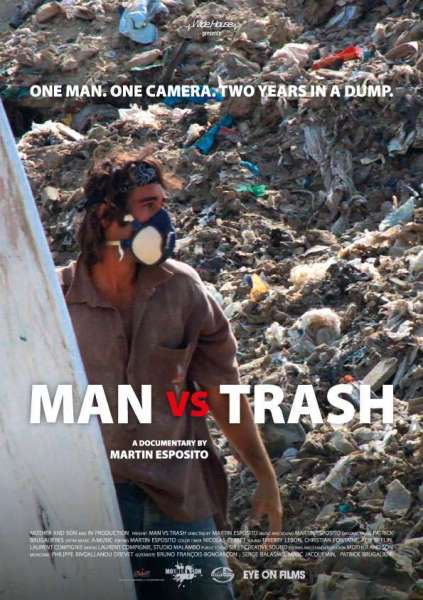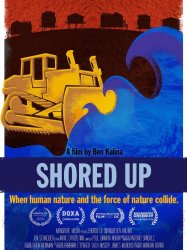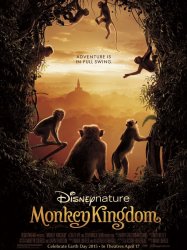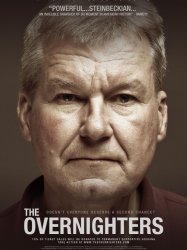Super Trash is a french film of genre Documentary directed by Martin Esposito with Martin Esposito
Super Trash (2013)

If you like this film, let us know!
Super Trash, stylisé SUPER TRASH, est un film français réalisé par Martin Esposito, sorti le 9 octobre 2013.
Synopsis
Martin Esposito part vivre pendant deux ans à la décharge de la Glacière à Villeneuve-Loubet. Il y vit, s'y nourrit et nous montre tous les défauts de notre société, qui se veut exemplaire, en matière d'écologie et de tri. La décharge et la vie qu'il mène au sein de celle-ci sont le reflet de nous-mêmes.Actors

Martin Esposito
(himself)
Comments
Leave comment :
Suggestions of similar film to Super Trash
There are 2 films with the same actors, 1 films with the same director, 8964 with the same cinematographic genres, 978 films with the same themes (including 0 films with the same 4 themes than Super Trash), to have finally 70 suggestions of similar films.If you liked Super Trash, you will probably like those similar films :

Le potager de mon grand-père (2016)
, 1h16Directed by Martin Esposito
Origin France
Genres Documentary
Themes Environmental films, La provence, Documentary films about environmental issues
Actors Martin Esposito
Rating63%





Au fil des saisons, un grand-père transmet ses méthodes acquises de génération en génération à son petit-fil pour cultiver son potager, avec autonomie et sans utilisation de chimie. De la graine à la récolte, ses principes sont enclins de biodynamique et de permaculture.

March of the Penguins (2005)
, 1h24Directed by Luc Jacquet
Origin France
Genres Documentary
Themes Films about animals, Environmental films, Documentaire animalier, Documentary films about environmental issues, Films about birds, Documentary films about nature, Films about penguins, Ecologie
Actors Romane Bohringer, Charles Berling, Jules Sitruk, Morgan Freeman, Torsten Michaelis, Andrea-Kathrin Loewig
Rating74%





Les manchots empereurs vivent en colonie en Antarctique. Au milieu de leurs congénères, chaque couple de manchots lutte contre les conditions extrêmes pour perpétuer l'espèce et protéger leur petit des nombreux obstacles et dangers qui les guettent. Chaque année est un cycle qui voit la naissance d'un seul petit manchot par couple, dont beaucoup n'atteindront pas l'âge adulte, voire n'auront pas la chance de naître. Outre le grand froid, le vent et les tempêtes, ils affrontent des prédateurs tels que le léopard de mer et le pétrel géant. Les parents alternent entre protection de l'œuf puis du petit dans l'intérieur des terres (plus stable et protégé que la banquise) et pêche sur le littoral. Des kilomètres de marche sont alors nécessaires pour utiliser les avantages de ces deux territoires alors que le manchot, bien plus à l'aise dans l'eau, est incapable de voler et se déplace avec difficulté sur le continent.

South to North (2014)
, 1h50Directed by Antoine Boutet
Origin France
Genres Documentary
Themes Environmental films, Documentary films about environmental issues, Ecologie
Rating67%





Sur une idée du président Mao Zedong, le gouvernement chinois lance le plus gros chantier de transfert d'eau au monde : « Nan Shui Bei Diao », littéralement « Sud Eau Nord Déplacer ». L'objectif : acheminer l'eau du sud vers le nord du pays, et notamment du fleuve Yangzi Jiang vers la capitale Beijing. Les conséquences : les déplacements de population et le bouleversement des écosystèmes.

Bonobos: Back to the Wild (2011)
, 1h30Directed by Alain Tixier
Origin France
Genres Drama, Documentary
Themes Films about animals, Environmental films, Documentaire animalier, Documentary films about environmental issues, Films about apes, Documentary films about nature, Mise en scène d'un mammifère
Actors Rebecca Hall, Sandrine Bonnaire, Emmanuel Curtil, Luke Evans
Rating65%





Béni, un chimpanzé bonobo, est né dans la forêt équatoriale de la République démocratique du Congo. Capturé par des braconniers, il se retrouve dans une cage posée sur le comptoir d'un bar à Kinshasa, où on le maltraite. Il est finalement recueilli par Claudine André, fondatrice et propriétaire du refuge pour bonobos Lola ya Bonobo...

Pandora's Promise (2013)
, 1h27Origin USA
Genres Documentary
Themes Environmental films, Documentary films about environmental issues, Documentary films about nuclear technology, Documentary films about technology
Rating72%






After Winter, Spring (2015)
, 1h15Genres Documentary
Themes Environmental films, Documentary films about business, Documentary films about environmental issues
Rating67%






Voices of Transition (2012)
, 1h5Origin France
Genres Documentary
Themes Environmental films, La mondialisation, Films about the labor movement, Documentary films about business, Documentary films about environmental issues, Documentary films about technology, Documentaire sur le monde du travail, Disaster films
Rating75%





Using interviews and overlays of graphics and text, the film presents the current problems facing industrial agriculture. It explores why in the interviewees' view the current industrial model is not up to the task of feeding the world's people. According to the film every calorie of energy contained in a food source currently takes between 10 and 20 calories of crude oil in the production of fertilizers and transportation to produce, leading to a strong dependence of the cost of food on oil prices. As a result of peak oil and increasing oil prices this dependence will lead to ever increasing food prices. According to the film, this dependence already represents a significant weak-spot in the global food supply chain. Additionally, agriculture is already responsible for 40% of greenhouse gas emissions, contributing to climate change. Furthermore, the film argues that the overuse of inorganic fertilizers has been responsible for the loss of soil fertility and threatens the complete loss of usable soil within the next decades through soil erosion and sinking crop yields. These effects, according to the film, can only be partly mitigated by the increased use of those same fertilizers. The loss of workplaces, the concentration of land in the hands of a few (allegedly a farm closes every 23 minutes in France) as well as the dependence on large corporations are enumerated as side effects of the industrialisation of agriculture since the 1920s. Companies, such as Monsanto and Bayer, control everything from seed stock to fertilizers and the necessary chemical mixes for hybrid plants, thereby controlling the entire supply chain. The film argues that this development was supported through subsidies from the World Bank. Interviews with Vandana Shiva, the founder of the Transition Towns movement Rob Hopkins and various agricultural experts serve to argue this viewpoint. The dependence on crude oil is illustrated through the example of the wholesale food market in Rungis.

Shored Up (2013)
, 1h24Origin USA
Genres Drama, Documentary, Historical
Themes Environmental films, Documentary films about environmental issues
Rating73%





The film explains the dangers of accelerating Sea-Level Rise through devastating effects of Hurricane Sandy.

Monkey Kingdom (2015)
, 1h22Directed by Alastair Fothergill
Origin USA
Genres Documentary, Animation
Themes Films about animals, Environmental films, Documentary films about environmental issues, Films about apes, Documentary films about nature, Children's films
Actors Suraj Sharma, Tina Fey
Rating71%





Maya is a toque macaque whose world is changed when her son Kip becomes part of her extended family. Maya’s family has its share of diverse personalities and she wishes her son to have the best advantages for advancing within the family's social strata. When their home is overrun by a neighboring tribe of monkeys, the family has to find a new home. Maya uses her inherent smarts to lead the family to new resources, but it develops that the entire group will have to cooperate in order to reclaim their original home, where Maya wishes to advance her son's future within the family.

The Overnighters (2014)
, 1h30Origin USA
Genres Drama, Documentary
Themes Environmental films, Documentary films about environmental issues, Documentary films about technology
Rating73%





The film depicts the lives of people chasing the dream of high salaries in the North Dakota oil boom, only to discover that affordable housing is almost impossible to find. Much of the focus is on the efforts of local pastor Jay Reinke, who allowed over 1,000 different people to stay at his Williston, North Dakota church over a period of about two years.
 Connection
Connection